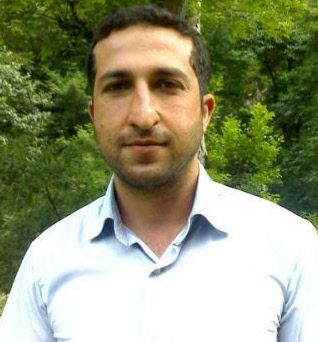
Updated at 4:03 p.m Eastern
WASHINGTON (BP) — Iran is under increasing pressure from leaders around the world to halt the execution of Iranian pastor Yousef Nadarkhani, who on Wednesday refused for the fourth and final time to recant his faith and could be executed at any time.
In the U.S., Speaker of the House John Boehner released a statement urging Iran to spare the pastor’s life and release him. Overseas, British Foreign Secretary William Hague also called on Iran to overturn the sentence.
Observers say external pressure could be critical in preventing the Iranian government from performing its first apostasy execution since 1990.
Arrested in 2009, Nadarkhani was told by an Iranian court this year that he would be executed unless he converted to Islam. The court gave him four chances to recant Christianity, and he refused to do so on four consecutive days this week, the final being Wednesday, Compass Direct News reported.
“I’m in contact with Iran,” a source close to Nadarkhani’s family told Compass Direct, “but the news isn’t very good. We’ll see. If they really want to they can kill him, because he hasn’t renounced his faith. It finished today. We have left everything in the hands of God.”
The American Center for Law and Justice reported one of Nadarkhani’s court exchanges.
“Repent means to return. What should I return to? To the blasphemy that I had before my faith in Christ?” he asked.
“To the religion of your ancestors, Islam,” the judge reportedly replied.
“I cannot,” Nadarkhani responded.
Firouz Sadegh-Khandjani, a friend of Nadarkhani’s and a member of the council of elders for the Church of Iran, said Tuesday that his friend could be executed at any time after he refuses to recant a fourth time.
“We need the prayers of Christians,” Sadegh-Khandjani said on the Jordan Sekulow radio show.
Compass Direct quoted a source close to Nadarkhani as saying it is critical that foreign governments negotiate and engage in diplomacy with Iranian authorities.
“They need to start negotiating,” the source said. “It’s the moment to negotiate, because if they do, the situation could be regulated.”
The source and advocates in the international community fear that authorities may kill Nadarkhani as early as midnight tonight (Sept. 28) or any time in the coming week.
“They probably won’t kill him today, but they can do it whenever they want,” the source told Compass Direct. “They can hang him in the middle of the night or in 10 days. Sometimes in Iran they call the family and deliver the body with the verdict. They have gone outside the borders of law. This is not in the Iranian law, this is sharia. Sometimes they don’t even give the body.”
Sadegh-Khandjani gave details of the incident that led to Nadarkhani’s 2009 arrest.
“He protested to the decision of the government to teach the Quran to his son,” Sadegh-Khandjani said. “He told them, ‘I’m Christian and I would like that my children [to] receive Christian teachings — not Muslim teachings.’ So they arrested him and they condemned him to death for apostasy.”
Earlier this year the Iranian Supreme Court upheld the death sentence but ordered a lower court to examine whether Nadarkhani was ever a Muslim — a fact essential to determine whether he left Islam for Christianity. But that lower court in Rasht, Iran, found that although Nadarkhani was never a practicing Muslim “he remains guilty of apostasy because he has Muslim ancestry,” the British-based Christian Solidarity Worldwide (CSW) which monitors religious freedom reported.
Christians have rights under the Iranian constitution but not under Sharia law, which according to the Iranian courts supersedes the constitution, Sadegh-Khandjani said. He called the situation “religion apartheid.”
“The tendency is not to respect the right of minorities,” Sadegh-Khandjani said. “Minorities are not considered as citizens.”
Leonard Leo, chair of the United States Council on International Religious Freedom, criticized the Iranian court system for not following Iranian law or international law.
“Despite the finding that Mr. Nadarkhani did not convert to Christianity as an adult, the court continues to demand that he recant his faith or otherwise be executed,” Leo said. “The most recent court proceedings are not only a sham, but are contrary to Iranian law and international human rights standards, including the International Covenant on Civil and Political Rights, to which Iran is a party.”
Supporters of the Iranian pastor applauded the statements from Boehner in the U.S. and Hague in Britain.
“Religious freedom is a universal human right,” Boehner’s statement said. “The reports that Pastor Yousef Nadarkhani will be sentenced to death by the Iranian government unless he disavows his Christian faith are distressing for people of every country and creed. While Iran’s government claims to promote tolerance, it continues to imprison many of its people because of their faith. This goes beyond the law to an issue of fundamental respect for human dignity. I urge Iran’s leaders to abandon this dark path, spare Yousef Nadarkhani’s life, and grant him a full and unconditional release.”
Said Hague, “I deplore reports that Pastor Youcef Nadarkhani, an Iranian Church leader, could be executed imminently after refusing an order by the Supreme Court of Iran to recant his faith. This demonstrates the Iranian regime’s continued unwillingness to abide by its constitutional and international obligations to respect religious freedom. I pay tribute to the courage shown by Pastor Nadarkhani who has no case to answer and call on the Iranian authorities to overturn his sentence.”
–30–
Michael Foust is associate editor of Baptist Press. With reporting by Compass Direct News.

















